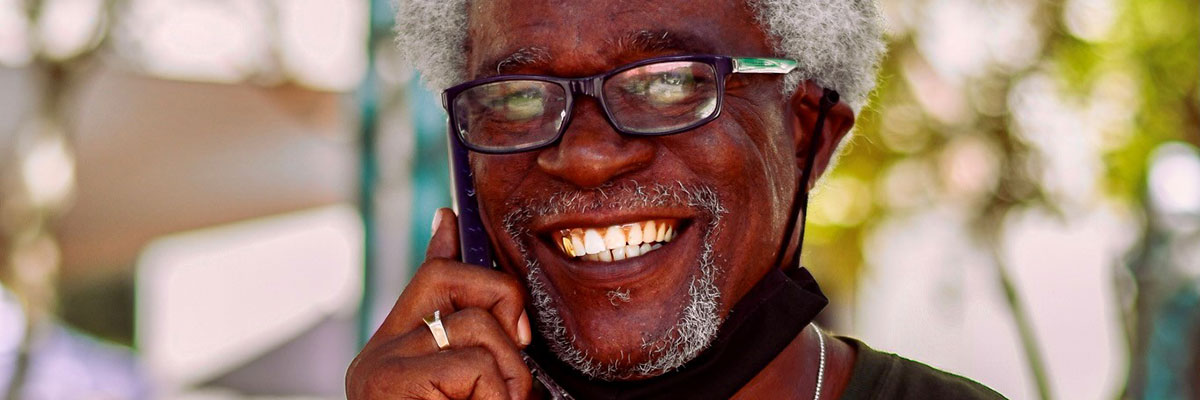Veteran outreach worker, Pastor Willie Harris, has spent 25 years walking downtown Miami streets and connecting with people experiencing homelessness. As a result of his work, hundreds of individuals have been placed in housing, received medical care, and rehabilitated after living on the street. But for many, Pastor Harris is more than just an outreach worker - he is the first person to be a real friend. He takes great joy in talking to the homeless, learning their stories, and getting them the help they need.
We sat down with Pastor Harris to learn how 25 years of service has impacted his life.
How did you become a homeless outreach worker?
I used to work delivery for a company in Doral. There was always this homeless man with a sign saying Money for Food. So I started packing an extra lunch at home and giving it to him when I had a delivery in the area, and eventually, I would stop to see him even when I didn't have a delivery! One Friday, I gave him his lunch, a pair of shoes, and a shirt, and he gave me a newspaper. In the newspaper, he had circled an advertisement for a homeless shelter. My wife said, "Well, maybe he sees something in you that would fit this job." I'm a pastor, and it seems like that was one of my callings; to deal with the people on the streets. I gained a passion for it because I saw how lives could be changed, and I learned a lot from people experiencing homelessness. These people were not just on drugs or alcohol; some of them just walked away from home and had nobody to talk to.
And what's your most memorable moment?
It's been about 25 years since I've been with the homeless program, but my most memorable moment is knowing that a lot of folks are no longer sleeping on the streets. They have apartments and are stably housed. My joy comes from seeing some of them make it. I don't remember all their names, just their faces. But when they come up to me and they ask me, "Pastor Harris. Do you remember me? You helped me back when I was sleeping over by the Citi building. You came and woke me up and talked to me. And now I'm back with my wife and back in my children's lives."
Alex Johnson is special to me, though. I remember it like it was yesterday. I was downtown, getting coffee, and a guy with huge muscles was walking around. He had his white khaki uniform and a yellow belt on, and when I saw him, I approached him. He charged right at me! I backed away, "Ok, maybe not today," I thought! But every time I saw him, I would carefully approach him. And then he started asking me for a quarter, or a soda, or a cigarette. I don't smoke, so I said “next time” I'd get him a cigarette.
One day, I asked him where he was from, and he told me he was from a mental program and was released from a state hospital. So I stayed with him, and every day, I would talk with him. To see him right now…living in his apartment, and to see him take care of himself, take his medication...it’s amazing. He remembers me. He always stops and says good morning before taking his walks downtown, but now, well, he always goes back home.
What are some things you do to build trust with people?
When I talk to someone, I try to understand them. I listen and sometimes they say they want to get clean, to get off the street, but in the middle of the conversation, they stop and say, "Can you give me a dollar?" I recognize this as a manipulation, but then I'll look at what I know about the individual. It's important that they trust me to get them to open up. The person might not be ready today, but they can ask anyone where I am downtown, and they know how to find me.
Is there anything else you want people to know about doing outreach that we haven't covered yet?
If you are an outreach worker, you need to have understanding, compassion and know what it feels like if you were in that person's shoes. I was homeless at one time, and I know what it feels like to be homeless. Be open and honest with the individual that is homeless because they know - they really know - whether you're truthful with them.
I love what I do, and I wish I could do more.



